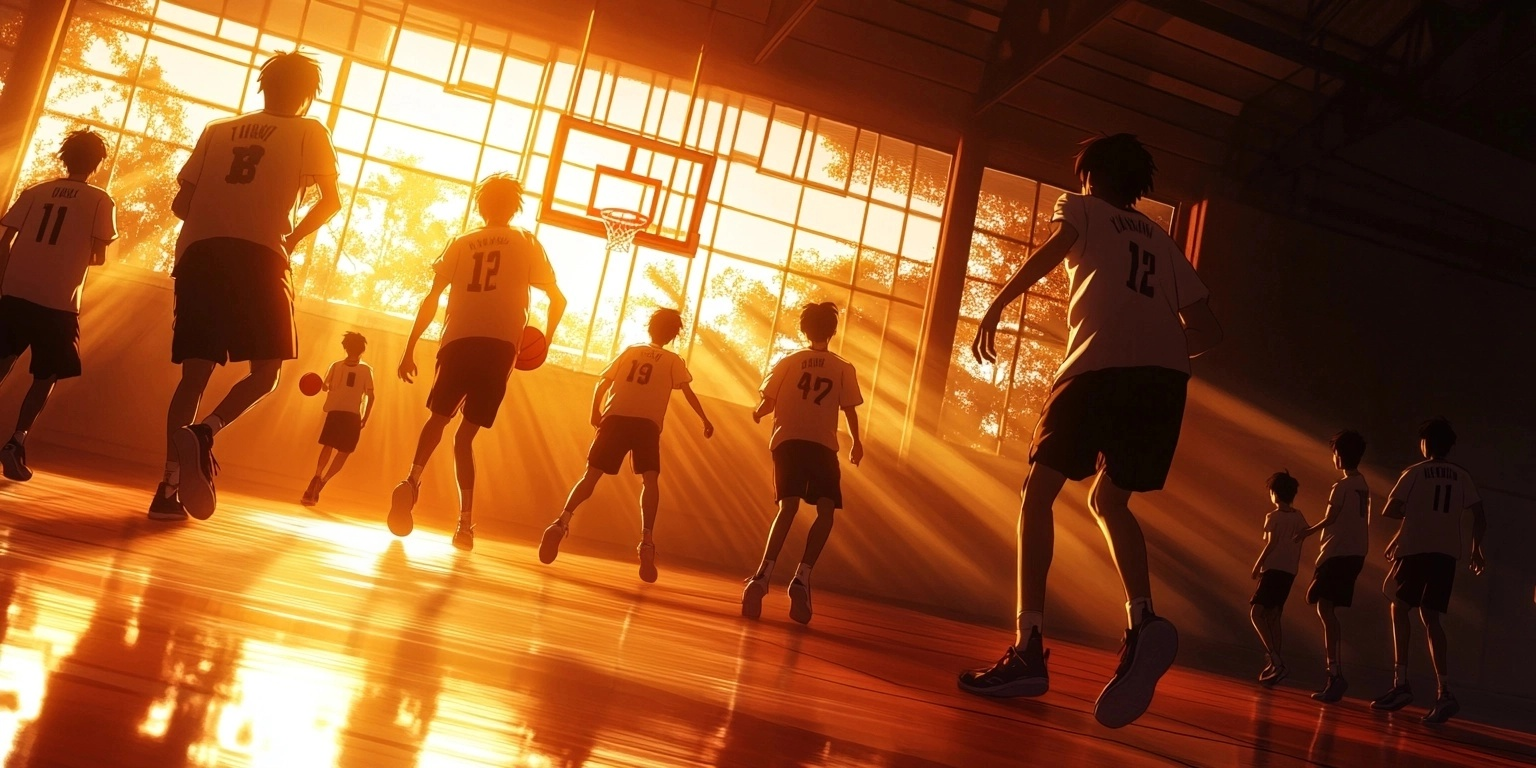
This is the second article in the series of "Ch4: Extra-curricular Activities".
- ①Graduate School Festival: Suzukakaidai Festival and Kodai Festival
- ②Basketball Club: From Club Culture to Niigata Ijuku ← You're here.
- Part-time job: Marukame's battle experience
Highlights of this article
- A Complete Analysis of Japanese Society Culture (Differences between Buraku, Saikaku, and Fellowship)
- Join the EIU Basketball Club for experience and practice!
- Niigata Hopscotch Complete Record (Transportation, Itinerary, Accommodation, Training)
- In-depth analysis of the Japanese senior-senior system (age culture, use of honorifics, table manners)
- Full Record of Hopscotch Group Recreation Activities (Drinking Party, Bingo, Fireworks, Watermelon Shooting)
- How International Students Integrate into Japanese Organizations (Practical Tips and Cultural Adaptation)
- Niigata Prefecture Tourism Information and Onsen Ryokan Recommendations
- Guided Reading and Reading Suggestions
- A Complete Analysis of Japanese Society Culture
- EUST Basketball Club Joining Experience
- Niigata Hopscotch Full Record
- In-depth analysis of the Japanese senior-senior system
- Record of Hopscotch Group Recreation Activities
- Conclusion
- Frequently Asked Questions (FAQ) for Readers
- Related Resources
- Read Next
Guided Reading and Reading Suggestions
Japanese club culture is an important part of campus life. Whether it's a sports, cultural, or academic club, it provides a platform for students to develop their interests, build relationships, and experience Japanese culture in depth. This article will give you a deeper understanding:
- ✅ Japanese Society Culture(Differences and characteristics of ministry activities, services, and fellowships)
- ✅ Eastern Technical University Basketball Club(joining process, place of practice, content of activities)
- ✅ Niigata Ajuku Experience(Full itinerary, training content, hot springs hotels)
- ✅ Senior Scholarship(Age culture, use of honorifics, table manners)
- ✅ Group Wellness Programs(Drinking party, bingo, fireworks, watermelon fight)
- ✅ Integration Tips for International Students(How to build friendships in the community)
- ✅ Observation of Cultural Differences(Comparison of Japanese vs. Taiwanese community culture)
We recommend reading the Quick Checklist first, then reading about the culture of the community and the experience of sharing a room, and finally referring to the FAQ for answers to frequently asked questions.
Quick Check Form (a must for joining a Japanese organization)
- 📋 Prepare for joining the community
- Confirm your schedule (are club practice times conflicting)
- Understanding the types of clubs (ministry activities, Saikaku, fellowships)
- Participation in Club Expo (Freshman Welcome Week)
- Check out the club website or SNS (to get a feel for the club atmosphere).
- Participate in experiential exercises (observe a few times before deciding)
- Inquire about the experience of older siblings (to understand the culture of the community)
- Confirmation of club fees (joining fee, monthly fee, activity fee)
- Prepare sports equipment (if a sports club)
- 📋 Points to note after joining the organization
- Learning Basic Salutation(Use honorifics for seniors)
- Proactive age inquiries("Confirm who is the senior sister)
- Active Participation(Exercises, dinners, shared accommodation)
- Abide by the rules of the organization(Late arrivals must be communicated in advance, absences must be excused)
- Help with preparation and cleanup("Positive attitude.)
- Attending social events(Cocktail parties, dinners, trips)
- Respect for the Senior Scholarship("Even if it's not customary, it must be observed.)
- Keep in touch(Join LINE group, reply to messages)
- 📋 Hopper Preparation Checklist
- Confirmation of dates and rates
- Preparation of sports equipment (sneakers, sportswear, protective gear)
- Preparation for laundry change (2-3 sets)
- Preparation of toiletries (toothbrush, towel, shampoo)
- Preparation of medicines (painkillers, gastrointestinal medicines, patches)
- Cash for preparation (additional expenses may be required)
- Chargers & Mobile Power
- Lightweight backpack (for carry-on items)
- Sunscreen (for outdoor activities)
- Thermos (for hydration)
A Complete Analysis of Japanese Society Culture
🏫 Three Types of Japanese Societies
There are three types of extracurricular activities that students regularly participate in at Japanese educational institutions:ministry work,Service,fraternityThe
1️⃣ Bukatsu (ぶかつ, bukatsu)
| Project | Description |
|---|---|
| Period of Occurrence | Middle school, high school, and college |
| goal | Official school clubs that focus on sports or specific skills (music, art, martial arts) |
| level of commitment | Requires a high level of commitment and daily or weekly practice. |
| Structure | Formalized structure with teacher or coach guidance |
| Training Intensity | Very rigorous, involving serious training or internships |
| Membership | Students who wish to pursue activities more seriously with the goal of competing in competitions |
| Hierarchy | It's a very strict system. |
| Exit Difficulty | It's hard to quit (they'll think you don't have the willpower). |
- distinctiveness
- Similar to the "school team" or "representative team" in Taiwan.
- Required to participate in external competitions (inter-school competitions, national competitions)
- Long practice time, usually 2-4 hours per day
- There was a strict class system and discipline.
- The seniority system is very obvious.
- Suitable for
- People who want to seriously develop a skill or sport
- People who are willing to invest a lot of time and energy
- People who can accept the rigorous training and hierarchy system.
2️⃣ サークル (Circle)
| Project | Description |
|---|---|
| Period of Occurrence | It's only at the university level (and even into the community) that the |
| goal | A more informal group formed around a common interest. |
| level of commitment | Less demanding, relatively less frequent meetings |
| Structure | Organizational structure is relatively loose and usually managed by the students themselves |
| Training Intensity | Medium, allowing for more casual participation. |
| Membership | Students seeking social interaction and recreation |
| Hierarchy | There is a mentorship system, but it's easier than the ministry. |
| Exit Difficulty | Easier exit |
- distinctiveness
- There are "school-approved" and "non-school-approved" clubs.
- Flexible practice times, usually 1-2 times per week.
- Emphasis on interest and socialization, not competition
- The seniority system exists, but it's easier than the ministry.
- Intercollegiate Clubs (Intercollegiate Clubs): Students can join clubs at different universities from their own.
- Suitable for
- People who want to balance academics and club activities
- People who want to make friends and enjoy hobbies
- People who don't want to be overly stressed
💡 Intercollegiate Clubs (Intercollegiate Clubs)::
This is a unique form of club in Japan, with members from different universities. For example, in "Waseda x Keio Basketball Club", students from Waseda and Keio play basketball together. This kind of club allows you to meet people from different schools and expand your social circle.
3 ️⃣ Friends Association (Doukoukai, Doukoukai)
| Project | Description |
|---|---|
| Period of Occurrence | It's only in college (but also in society). |
| goal | Interest groups made up of individuals who share a common hobby |
| level of commitment | Very low, emphasizes enjoyment and common interest |
| Structure | Less formal organization, lack of official school recognition |
| Training Intensity | Little to no training. Pure entertainment. |
| Membership | Hopefully very flexible participants |
| Hierarchy | There's almost no class system. |
| Exit Difficulty | You can quit at any time. |
- distinctiveness
- The easiest and freest form of social clubs
- No regular practice times, just come and go as you please.
- Usually centered around a niche or personal interest.
- When you get out of the society, you can also find your friends on the internet.
- Suitable for
- People who just want to relax and participate in activities
- People with very limited time
- People who don't want to be tied down by the community.
📊 Comparison of Three Types of Clubs
Use a table to compare the three types of clubs:
| Project | Departmental Activities (Varsity) | SOCIETY | Fellowship (Fellowship) |
|---|---|---|---|
| level of commitment | ⭐⭐⭐⭐⭐ | ⭐⭐⭐⭐⭐⭐⭐⭐ | ⭐ |
| Practice Frequency | everyday | 1-2 times per week | fluid |
| Practice Time | 2-4 hours/times | 1-2 hours/times | fluid |
| Hierarchy | Very strict. | moderate | Hardly. |
| competitive | High (for competition) | Medium (occasional games) | Low (pure entertainment) |
| Exit Difficulty | It's hard. | moderate | liable (to) |
| Suitable for | Serious Skills Developers | Those who want to balance their studies with their hobbies | For those who want to participate easily |
🔍 How do I choose the right club for me?
Try the following steps to find the right club for you:
- Step 1Social Club Expo
- Time: During and after the Admission Ceremony
- Content
- Club members will distribute flyers
- You can ask the members of the organization directly
- You can see photos and videos of the organization's activities.
- You can sign up for a trial on-site
- skill
- Get more flyers and compare them
- Ask directly about "practice time," "fees," and "how strict is the student-teacher system."
- Observe the atmosphere of the club members (are they friendly and enthusiastic)
- Step 2Check out our website or SNS
Most clubs have their own websites and social accounts:
- Official Website: Learn about the history of the club, its activities, and practice times.
- Official list of societies:Eastern Technical University Extracurricular Activities Organization
- The club introduces the movie:Part 1 / Part 2
- Twitter/X: See the latest event news
- Instagram: See photos and videos of the event
- LINE Official Account: Join to receive notification of updates
- Official Website: Learn about the history of the club, its activities, and practice times.
- Step 3Attend the New Student Welcome Reception
- Time: Before and after the entrance ceremony
- Content
- Welcome party or cocktail party organized by the organization
- Chatting with seniors
- Getting to know the club atmosphere
- Gourmet food tasting (usually with food and drink)
- Points of Attention
- Don't just agree to join because it's free!
- Ask more questions to understand the culture of the community
- Observe the way your older siblings get along with each other
- Step 4Experiencing community activities (very important!)
- methodologies
- Go straight to the observatory and experience the atmosphere for a few days!
- Observe the content and intensity of exercises, chat with members and learn about the culture of the club.
- Experience Highlights
- Acceptability of exercise intensity
- Friendly atmosphere
- Whether practice time conflicts with the curriculum
- 💡 Recommendation
- Try it at least 2-3 times before deciding whether to add it or not, so as to avoid adding it only to realize that it is not suitable.
- methodologies
EUST Basketball Club Joining Experience
Not long after I entered ETU, a Taiwanese senior who came to ETU at the same time as me recommended that I play basketball with him. I learned that there was going to be a basketball tournament for the Architecture Department (see Ch3, Part 7 for details), so I started to join the basketball club. At that time, myJoin the MotivationBelow:
- Want to know more about Japanese students
- Maintaining an Exercise Routine
- Practicing Japanese (it's easier to talk during sports)
- Preparing for the Architecture Basketball Tournament
📍 Where and when to practice
Tuesday evenings (19:00-21:00)
Miyamae Elementary School (みやまえしょうがっこう)
- placement
- Nearest station:Jiyugaoka Station
- Walking time: about 20 minutes walk from the station
Sunday morning (10:00-12:00)
Yakumo Elementary School (やくもしょうがっこう)
- placement
- Near Miyamae Elementary School
- 7-minute walk from Miyamae Elementary School
Gymnasium Features::
- Typical Japanese elementary school gymnasium
- Wooden floors, well maintained
- Have complete basketball equipment (rims, scoreboards)
- You need to take off your shoes and change into indoor shoes.
💭 My Experience and Feelings
About joining the basketball club, I think it is a good place to socialize with Japanese people while playing sports. When we play sports, we are more relaxed and chatting is more natural. Even if you are not fluent in Japanese, you can still communicate with your body language and ball skills. This is the place where I have made the most Japanese friends. Below are some of the strengths and challenges:
- Advantages
- ✅ Communication in sports is easier and more natural
- ✅ It doesn't take much language to communicate (talking on the ball)
- ✅ Learned a lot of sports-related Japanese.
- ✅ Building deep friendships (sweating the revolutionary feeling together)
- ✅ Maintain a healthy exercise routine
- Challenge
- ⚠️ Adaptation to the Senior Scholarship System
- ⚠️ Special attention should be paid to the use of honorifics
- ⚠️ Possible Conflict of Practice Times and Courses
Niigata Hopscotch Full Record
Hostel Invitation
Near the end of summer vacation, I saw a message pop up on the LINE group:
"Tell me if you want to participate in the training program!"
When I heard that the event would be held in the mountains of Niigata Prefecture, I thought that I might not have a chance to go there in the future, so I signed up for the event right away.
So, what is "Ibusuki" and what is "Niigata"? "And what is Niigata like?
📅 Basic Information on Isejuku
What is "co-habitation"?
Hopuku (がっしゅく) It is a period of time when participants come together to spend time together for a specific activity or purpose.
Key Features of HOSHINOYA
| Features | Description |
|---|---|
| Purpose | Learning, sports, training, team building |
| Focused Activities | Participants engage in focused activities to increase networking opportunities |
| Environmental Changes | Often accompanied by accommodation to gain experience in different environments |
| Team Cohesion | Enhance cohesion with partners who share the same goals. |
Types of Japanese Hopscotch
| Type | Description | Frequently Asked Questions |
|---|---|---|
| School Boarding | Training camps for clubs and school teams | Student |
| Company shared accommodation | Staff training, teamwork training | office workers (as social group) |
| Photographs | Intensive classes for driving license and certificate | student whose name has been put forward for an exam |
| Music | Intensive practice for orchestra and choir | Music Lovers |
💡 Cultural Observations: Japan's co-habitation is similar to the winter and summer training of Taiwan's university teams or athletic clubs, but the difference is that Japan's training will choose to go to a mountainous area or a place farther away from the school such as the seaside, so as to cultivate the team's feelings.
Niigata Prefecture
Niigata PrefectureLocated in the Hokuriku region of Honshu, Japan, facing the Sea of Japan, it is famous for its magnificent natural scenery and rich culinary culture.Main Features of Niigata Prefectureandgeographic locationBelow:
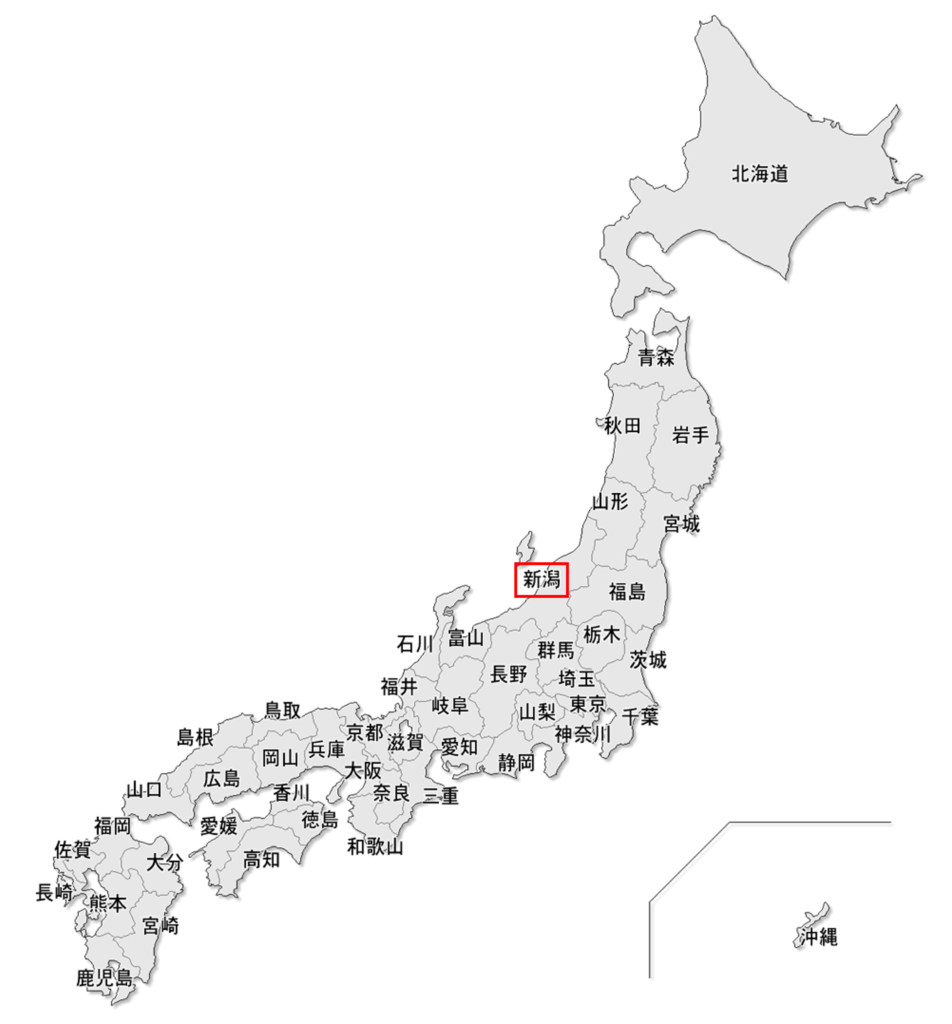
(source. http://www.craftmap.box-i.net/)
| distinctiveness | Description |
|---|---|
| The Land of Rice | Famous for producing high-quality rice (e.g., Koshihikari rice), and known as the "Rice Village |
| Howe Snow Belt | One of Japan's most popular snow areas, where the unique culture of snow is developed. |
| Hot Spring Township | There are many hot spring areas (e.g. Echigo Yuzawa Onsen), which are popular tourist resources. |
| Sake Producers | Sake brewing has flourished due to the abundance of high-quality rice, which has given rise to many famous brands. |
| Nature's View | Rich natural resources such as mountains, Sea of Japan, Sado Island, etc. |
| cultural heritage | Many traditional festivals, performing arts and unique culinary cultures are preserved. |
🚌 Hop-on Hop-off Itinerary and Transportation
On September 15th, all 18 members of the club met at Ikebukuro Higashiguchi exit at 8:30 am and took a bus to Niigata, arriving at Yuzawa-cho, Minami-Uonuma-gun, Niigata at around 12:00 pm. After that, we took a mini-bus and arrived at the basketball practice area at about 1:00 p.m. because we had to go into the mountain road.
💡 traffic alert: You can take either the Shinkansen or a bus from Tokyo to Niigata. Shinkansen is fast but expensive (about 10,000 yen), while buses are slow but cheap (about 3,000-5,000 yen). Organizations usually charter a bus and share the cost.
📋 Hopscotch daily itinerary
Basically, a sleepover is just as much work as a sleepover in a Japanese drama or anime.The daily itinerary is pretty much the same:
| Time | Events | Location |
|---|---|---|
| 07:00-08:00 | breakfast | Hotel Restaurant |
| 08:00-12:00 | Morning Exercise (Aerobics, Basic Movement) | Gymnasium |
| 12:00-13:00 | luncheon | Gymnasium Lounge (for lunch) |
| 13:00-17:00 | Afternoon Training (Divisional Competition) | Gymnasium |
| 17:00-18:00 | Back to Hotel | bus (loanword) |
| 18:00-19:00 | supper | Hotel Restaurant |
| 19:00-20:00 | Toilet/Bath | Ryokan Onsen |
| 20:00-23:00 | Cocktail / Reunion | Lobby or Room |
| 23:00 | sleep | Room |
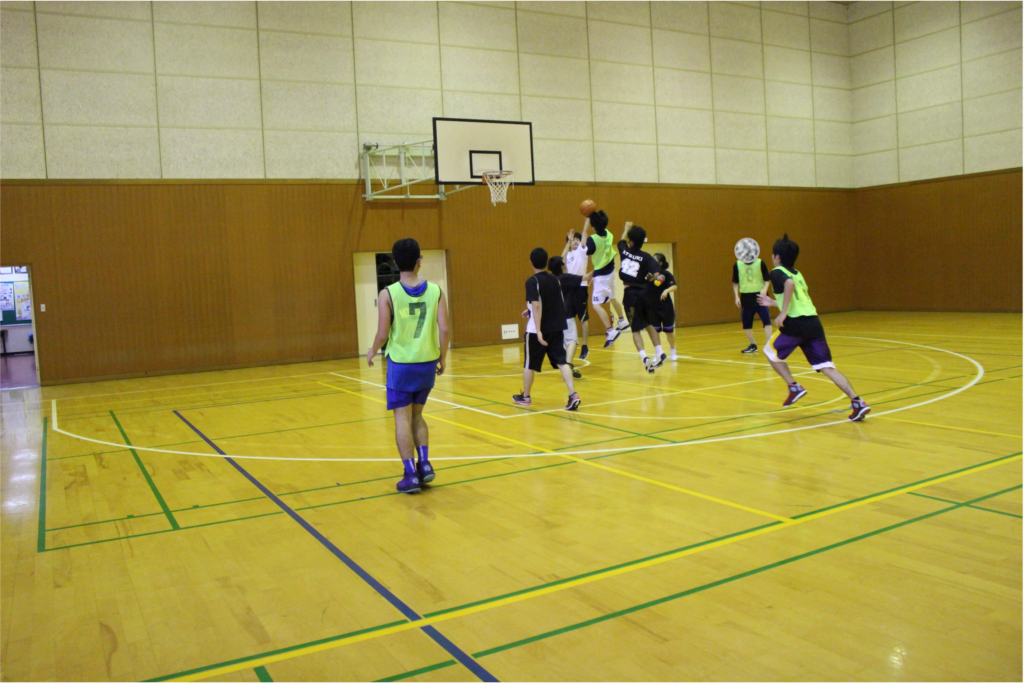
My feelings::
"On the whole, even though the training is not as strict as that of the Taiwan sports team, practicing seven hours a day is still a bit tiring. However, there are hot springs in the hotel where you can soak, and after practicing, the hot soup will immediately eliminate all the fatigue and soreness of the whole day, and together with a little bit of wine, it is very good to sleep.
Shared Accommodation
"Hotel Chyo/Cho is a modern and cozy wood-style ryokan located in Niaoba, Niigata Prefecture, surrounded by nature. It is a modern and cozy wood-style ryokan, suitable for tennis, golf and fishing in the summer, and ideal for skiing and other sports in the winter. I heard that a lot of groups organize their overnight stays here, and the rating is very high. The following photos show the situation inside the hotel at that time:
If you are interested in the hotel "ホテル丁(ちょう) HOTEL CHYO", please click the button below to make an online reservation!
💡 Recommendation
If you are interested in the hotel "HOTEL CHYO", you can make a reservation online by clicking the button below! This is a great hotel for group activities.
In-depth analysis of the Japanese senior-senior system
🎂 Ask for your age at first meeting.
"How old are you?"
In Taiwan, it's rare to ask someone their age right off the bat, but in Japan, it's one of the first questions I get asked when I meet a new Japanese person.
Why do Japanese ask for age?
There are two main reasons:
- Grammar of honorifics based on the culture of the sequence of years of service: Age is usually used to determine whether to use honorifics or modesty.
| Age | Language |
|---|---|
| The other person is older than you. | Use of honorific expressions (です・ます, respectful expressions) |
| The other person is younger than you. | Use of Putonghua (だ・である, or honorific) |
| Same age | Usually in Mandarin (more intimate) |
- There will be questions about expected roles based on ageMost of the Japanese people's life events are accomplished in a specific period of time, for example, they start working at the age of 22 after graduating from university, and get married before the age of 30, etc. Therefore, age can be used to determine the approximate experience of a person, and it can be used to determine the approximate events of life that a person has experienced.
| Age | Anticipated Life Events |
|---|---|
| 22 years old | Graduated from college and started working |
| 25-28 years old | Getting a foothold in the company |
| 28-32 years old | Getting Married |
| 30-35 years old | give birth to a child |
| 35-40 years old | Promoted to Mid-Level Supervisor |
| 40-50 years old | Become an Executive |
To whom do I need to speak respectfully?
Personally, I usually speak with respect to the following people:
Schools
| object (of discussion) | Description |
|---|---|
| Teacher. | Use of honorifics regardless of age |
| Ms. Principal. | People who are older than you or who started school earlier |
| classmate | Use honorifics when meeting someone for the first time, and see what they want to do when you get to know them better. |
Career
| object (of discussion) | Description |
|---|---|
| supervisors | Use of honorifics regardless of age |
| senior | Those who joined the company before you are all seniors. |
| Mid-career Transferees | If you have more experience than you do, use honorifics. |
females
My Proposal::Basically, don't ask a girl her age, so just use honorifics.
- rationale
- Japanese women are more sensitive to age
- Asking the age may make the person uncomfortable
- It's safer to use honorifics. It's not rude.
- Interesting Observations
- A lot of women usually speak to men in honorifics, regardless of their age.
- Even between a boyfriend and a girlfriend, most girls still use honorifics at first.
- You may switch to Putonghua when you get used to it, but you still have to be polite.
💡 Advice for MenYou should not ask a girl her age before she asks you, it's better to talk in honorifics.
🍖 Senior Scholarship: Table Manners
This time, we had a BBQ dinner, the host couple grilled the meat for us, so that we could eat as much as we wanted. However, we still have to follow the rules of the Japanese table.
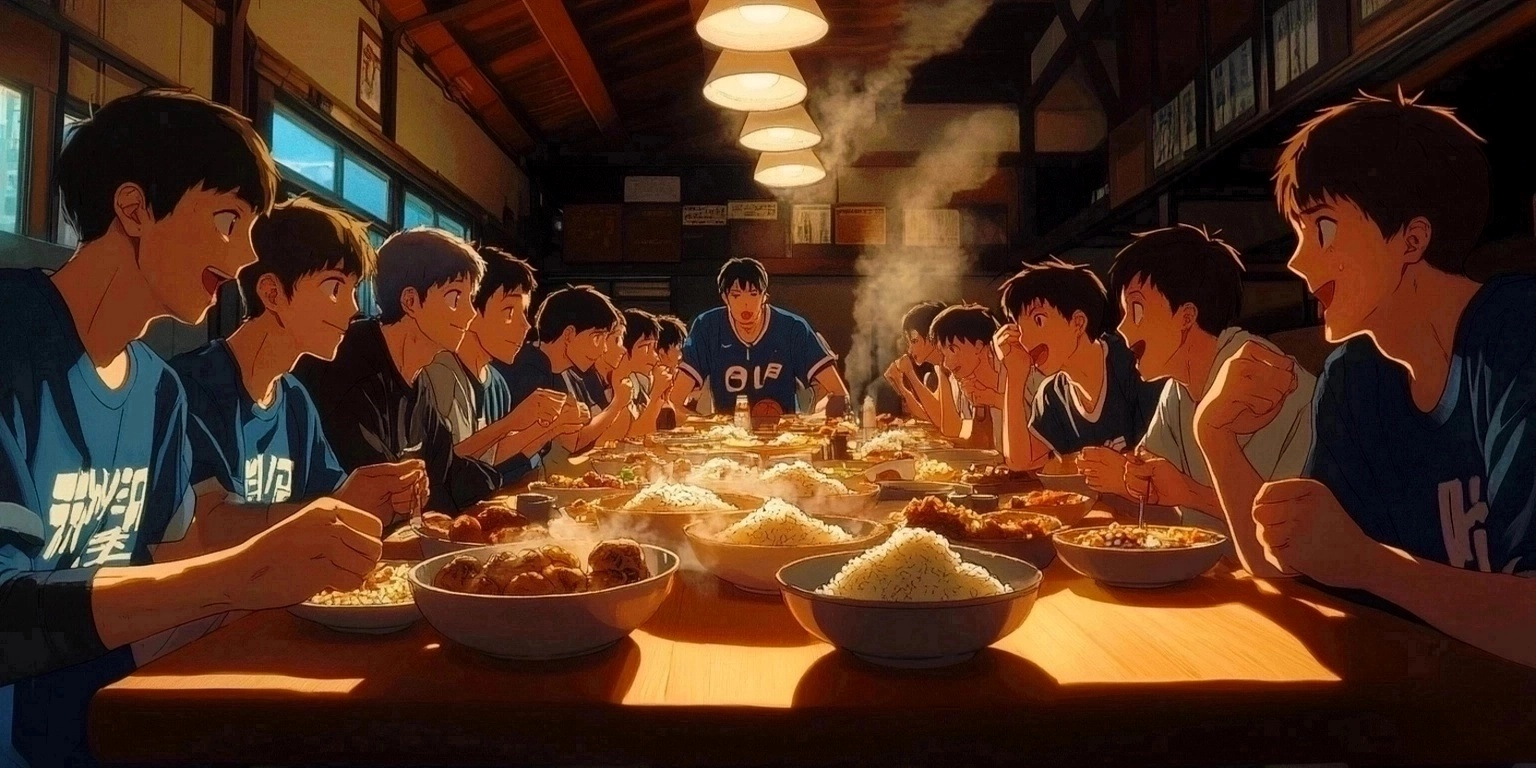
Dining Rules for Japanese Groups
| Rules | Description |
|---|---|
| 1. wait for all staff to arrive | If you want to serve yourself, the senior will do it first, then the junior. |
| 2. Pre-dinner speech | Say "いただきます" (いだきます) for today's hard work, and then eat the meal. |
| 3. Eat clean | It's not a rule to leave leftovers, but it's a courtesy and a sign of respect for food. |
| 4. "Eat all the food" game | When there was more rice or vegetables, the seniors would let the younger students play a game, and the loser would have to eat all the leftovers. |
| 5. Putting away the dishes | When you're done eating, stack the same dishes as those seated nearby, dump the garbage together, and sort them clearly. |
| 6. Exit speech | Make sure everyone is finished and ready to leave, someone will host the after-dinner thank-you speech. |
| 7. Shout a word of thanks together | Shout out "ごちそうさまでした" (thank you for the hospitality) to show your appreciation. |
| 8. Return to kitchen | Take the plates to the kitchen. |
My feelings::
"On the whole, although it is a club, the status of the senior is still very high, so it is clear that the senior-senior system is still very much valued in the school."
Record of Hopscotch Group Recreation Activities
During the period of sharing, it is common to organize some bonding activities during the breaks, most likely a drinking party and some games.
🍺 Sip to Kill the Feud: The Culture of Drinking Clubs
Usually, there will be a drinking party after dinner, which is mainly for "clearing the air", so that seniors who feel offended can talk to their juniors directly and let them make amends.
Seating Arrangement
As mentioned in previous chapters, the ones farther away from the door were for the seniors, so at that time we had the following seating arrangement:
- Freshman sat in the corner first.Waiting for the seniors to arrive.
- After Sophomore and Junior are seatedYou can't be seated until you're a year older.
(I'm a senior.Naturally, they addressed me as the president of the university, and they sat me respectfully in the center of the room.)
Liquidation Segment
Next, they will "liquidate the wrongdoers," upholding"The revenge of the day is over.", the liquidation process is broadly as follows:
- Starting with the organizer of my junior year, I'd like to talk about who I think has offended him today.
- Tell me what's wrong.
- Let the man have a drink, and let him make amends to a particular senior or the whole group.
- That's how it's done.
💡 The so-called "mistakes" that the seniors are talking about.::
- Forgetting to use honorifics
- I went to pick up a ball without listening to my senior.
- I accidentally called him by his last name without adding "san".
- Slowing down your teammates when you play
- I slept in and was late.
- You can't play without strength.
Penalty
The person being named is going to be:
- Apologize to everyone and pay your respects or sit down.(kneels and apologizes)
- Drink the whiskey.
- If you don't want to drink, you can ask someone to drink for you.
- If you leave the table in the middle of the meal to go to the toilet, when you come back, everyone will say "Welcome back! and then hand out a glass of wine for the person who left the table to drink as an apology.
My feelings::
"This is probably the only club that does the above, but it's fun. It may seem strict, but it's actually a way of bonding. After the drinks, everyone laughs and smiles, and it's a very relaxed atmosphere."
🎲 BNG (BINGO GATHERING): Bingo Games
In the club. BNG (i.e., the English version of Bingo(bingo), which basically plays out the same way as in Taiwan, but with a few special touches on the night of the shared accommodation.
Special Rules
| Rules | Description |
|---|---|
| Nakama no Hole has been there since the beginning. | No need to draw the middle number |
| Four numbers and a drink. | When a man wins four numbers, he has to stand up and drink a small glass of whiskey. |
| All BNG Prizes | When all the BNG's are done, you get a prize, and then you have to drink another glass of wine as a thank you. |
Prizes
Most of the prizes are pretty good:
| prizes | Description |
|---|---|
| Sports Cleansing Water | I got the prize. |
| Japanese Mischief Mask | For Funny |
| Origami Toys | Cute Paper Cranes |
| Lazy Eyeglasses | Glasses for reading while lying down |
| happy pill | Rarest Prize (see below) |
The rarest of them all is the one called "Happiness Pills" The pills:
- It's not a drug. It's a little stimulant.
- When that guy drew, everyone thought he had an aphrodisiac.
- After watching the student swallow the whiskey with...
Everyone asked excitedly"Do you feel anything down there?"
He smiled and shook his head.: "Uh...no reaction really."
⚠️A little reminder: about noise
Since we shared a room in a hostel, we were able to make as much noise as we wanted, otherwise in Tokyo the volume would have been investigated by the police. A foreign student was partying in the dormitory, and it was so noisy that the police came to investigate, and since the Japanese police didn't know any English, they took the student to the police station and waited for the interpreter, which took a total of five hours, so it's not recommended to party at night in the residential area.
🎆 FW (fireworks/firecrackers): fireworks convention
In this organization. "FW" (i.e., the English version of FireworkIn Japan, it's called "Sparklers."The fireworks at Hopscotch were more like Taiwanese New Year firecrackers. However, the fireworks at Hopscotch are more like the firecrackers that are set off in Taiwan on New Year's Eve.
Taiwan-Japan Flower & Fire Comparison
| Name | Japanese | Taiwan |
|---|---|---|
| Fairy Wand (スパークラー / Sparkler) | It's super short. It's gone in a flash. | It's long, it's big, it'll last longer. |
| Sky Cannon (ロケット 花火 / Sky Rocket) | It's gone in a flash, and the leads are often burned out. | They can fly far and high, and some of them can even make a sound that reaches to the sky. |
| Butterfly Cannon (Butterfly Firework) | It's gone. | It's so colorful, so far away and so beautiful. |
| Hand Held Firecrackers (手持つ花火 / Hand Holding Firework) | There are a lot of varieties, but there are only about 10 rounds in a pack. | Variety, usually 50-100 rounds in a package |
| Line Fragrance and Flower Spark (せんこうはなび) | The line is fragrant and sparklingIt's a kind of firework only found in Japan. It's similar to a fairy wand, but softer. | – |
💡The line is fragrant and sparkling
It's the kind of fireworks that appear in Japanese dramas that only let the fire burn until the rope is gone, and it seems boring but it's the most well-known fireworks among Japanese people.Summer Must-Haves for Couples and Friends!
My Flower and Fire Experience
In addition to the above mentioned pyrotechnics, there are many other pyrotechnics such as color-changing pyrotechnics, ghost pyrotechnics, torch pyrotechnics and so on."100 rounds of hand-held doubles."of the fireworks that everyone is afraid to put on.
So I put down my camera, and I was left alone with a hundred rounds of pyrotechnics, and I lit ten sticks at the same time.Successful creation of a beautiful, short-lived sparkler.The
🍉 WM (スイカ割り) : Hit the watermelon!
I'm still looking forward to Tuan Hong the most. "WM"(i.e., the English version of WatermelonJapanese "SIKA CUT"It's like hitting a watermelon on the beach.
I've never seen it in Taiwan since I was a kid, but I got to see it for myself at the Hopscotch.

- way of playing
- Place the watermelon on the beach or on the ground
- Spin the hitter around for the 10th time to make him forget the direction and location of the watermelon.
- The participant is blindfolded and holds a stick.
- People around you will use "Right! A little more to the right!" "Straight!" and other sounds to guide, or trick, the batter away from the watermelon.
- The blindfolded person swings the stick in the direction of the watermelon according to the sound (it's hard to split it in half in one go)
- Crack the watermelon and share it with everyone.
- Rules
- There are no special rules, but safety is paramount
- Decide in advance the area where the baton is to be wielded, and keep people around you at an appropriate distance for safety precautions.
- Highlights
- Sound guidance is very important. Those around you should give the blindfolded person clear and easy to understand instructions to ensure that they can safely approach the watermelon
- Sharing the joy of cracking a watermelon is the essence of watermelon games!
- Points of Attention
- Be careful not to hit the people around you when you swing your stick.
- Don't play in dangerous or easily soiled areas
- Children must be accompanied by an adult.
My feelings::
"Being able to experience such a traditional Japanese game made the trip worthwhile and was a perfect end to my summer."
Conclusion
From club practice to Niigata's dormitory, from the strict senior-senior system to the joyful group recreation activities, each episode has given me a deep understanding of the importance of the program. The Unique Charm of Japanese Society CultureThe
Since I was on exchange for one year, I was fortunate enough to be able to participate in the summer program, which allowed me to experience the culture of the local community and make some Japanese friends.
I learned from this experience:
✅ Clubs are the best way to experience Japanese culture.: Not just a sport, but a cultural learning experience
✅ Adaptation to the Senior Scholarship System: Respect and observe even if you are not accustomed to it.
✅ Shared accommodation is the key to nurturing relationshipsSweating and playing together builds friendships.
✅ Exercise is the best social languageEven if you're not fluent in Japanese, you can still communicate by playing.
If you are going to study in Japan, I highly recommend it:
During the exchange period, if you have time outside of your studies, try to join a club to experience the Japanese school culture in depth!
If you are afraid that you can't communicate with Japanese students because of your poor Japanese language skills, you can Join a sports club and meet friends through sportsmanship.During the breaks, we try to communicate with Japanese students. Not only can we directly experience the cultural differences, but we can also train our Japanese language skills.
Frequently Asked Questions (FAQ) for Readers
- QCan international students join Japanese organizations?
- A
Yes, you can! International students are very welcome to join us!
- Most clubs welcome international students
- Exchange students may also join (usually without paying full community fee)
- Some clubs even have a "student allowance" (留生枠).
- Join the Benefits
- Networking
- Getting to know Japanese friends
- Experiencing Japanese Culture
- Practicing Japanese
- QCan I join a club if I don't speak Japanese well?
- A
Yes, it is possible! Sports clubs are especially suitable for students who cannot speak Japanese well.rationaleBelow:
Strengths Description Body Language Communicate through body language during sports. Simple Instructions Relatively simple sports terminology (pas, seat, defenders) Talking Balls Build status and respect with your skills. Natural Learning Learn Japanese naturally through sports - Recommendation
- Choose a Sports Club (Basketball, Soccer, Volleyball, Tennis)
- Learn basic sports terminology beforehand
- Observe and imitate more
- Don't be afraid to make mistakes.
- Recommendation
- QIs the seniority system very strict?
- A
Depends on the organization, but is common. The following table gives an idea of the types of societies.Strictness::
Organization Type Strictness Description Departmental Activities (Varsity) ⭐⭐⭐⭐⭐ It's very strict. There's a hierarchy. SOCIETY ⭐⭐⭐⭐⭐⭐⭐⭐ Medium, classy but easy fraternity ⭐ Almost no class. - Frequently Asked Questions
- Use of honorifics for seniors
- The students have to help pick up the balls and prepare the equipment.
- The younger students will help the older students to pour the wine during the cocktail party.
- Table manners to follow
- Adaptation Tips for International Students
- Respect cultural differences as you enter the country
- Observe what other students are doing
- If you don't know, ask. The Japanese will understand if a student is unfamiliar.
- Keep a positive attitude
- Frequently Asked Questions
- QDo I have to participate in a shared house?
- A
Not necessarily, but highly recommended!join a hostelThe reasons are as follows:
rationale Description Building Friendships Living together, training together, it's a great bond. In-depth cultural experience A unique cultural experience in Japan. Technology Enhancement Intensive training improves skills quickly Travel Opportunities You can go to places you wouldn't normally go to (e.g. Niigata) Group Wellness Programs Drinking parties, bingo, fireworks, watermelon fights, and other fun events. 💡 Recommendation: Participating in at least one homestay is a unique experience during your stay!
- QIs Niigata Prefecture worth traveling to?
- A
It's worth it! Especially for those who love nature and hot springs. Below areRecommended Scenic Spots in Niigata Prefecture::
Viewpoints distinctiveness Seasonal Echigo Yuzawa Onsen Yasunari Kawabata's "Snow Country" is set in a famous onsen village. full year Naeba Ski Resort One of the largest ski resorts in Japan winner Sado Island Outlying islands, gold mine ruins, ocean view summertime Niigata City The largest city on the Japan Sea, with a rich variety of food full year Yahiko Shrine The largest shrine in Niigata Prefecture full year Chingjin Gorge One of Japan's three major gorges fall - Niigata Prefecture Gourmet
- Koshihikari rice (the best rice in Japan)
- Niigata Sake (No.1 in Japan's sake production)
- Heggi Soba (Specialty Soba Noodles)
- Sasadanoko (glutinous rice balls wrapped in bamboo leaves)
- Persimmon Seed (Persimmon Shaped Rice Fruit)
- transportation
- About 2 hours by Shinkansen from Tokyo
- 3.5-4 hours by bus from Tokyo
- Niigata Prefecture Gourmet
Related Resources
- Children? Explaining the Violations of Ministry and Sacrifice
- Ministry of work・Shakur] Ministry of work and Shakur ってどう違うの? Basic Knowledge of Kempislave
- Events | For Students | Science Tokyo Old Tokyo Institute of Technology
- List of services - Titech Info : Tohoku University Information Service
- What is a shared accommodation? Basic Knowledge of Hostels and Hostels
- Niigata prefecture ってどんなところ? We would like to introduce Niigata's culture, food, festivals, and the origin of the name of the prefecture!
- On "Sake" and "Japanese Sake" - National Tax Office
- Japanese "Senpai/Senpai" Culture and its Service
- Bingo game program and tour specials! Wedding Party and Patreon
- Omocha Flower Fire Music
- Types of Toy Sparklers
- The way to make guesstimates for the formula of the sika cuts and other things than sika.
Read Next
Let's go, let's read the next one!
Want a little refresher on the last one?
Or go back to the EP1 catalog for a different story?



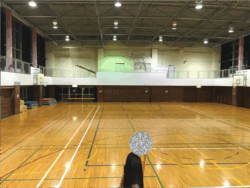

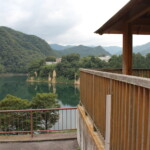




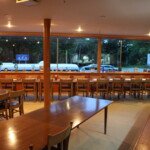


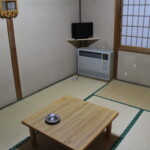
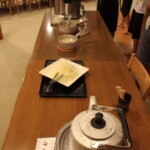
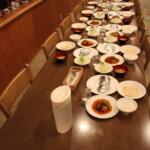

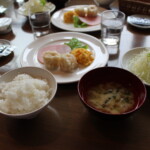
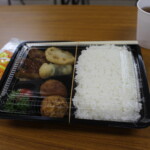
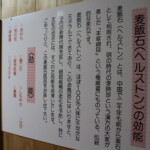
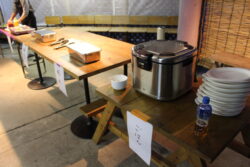
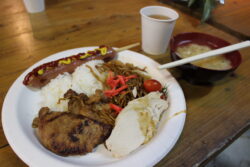
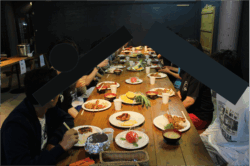
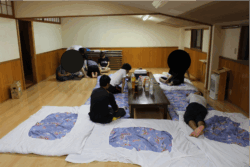
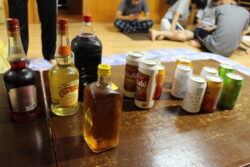

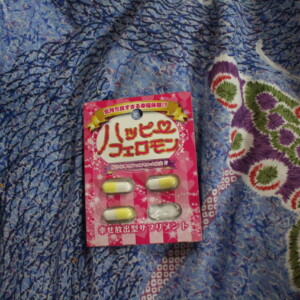
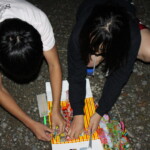
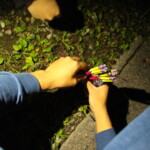
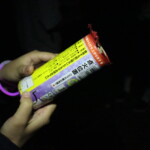



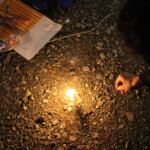

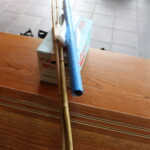



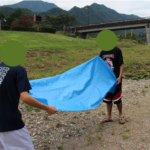
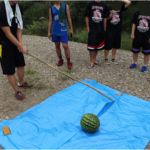
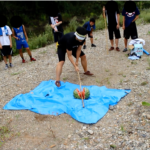




Message Center Feedback